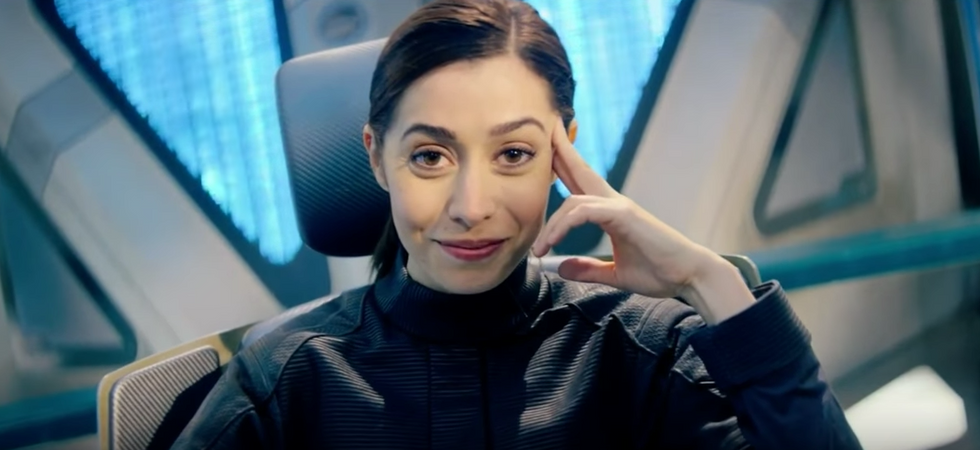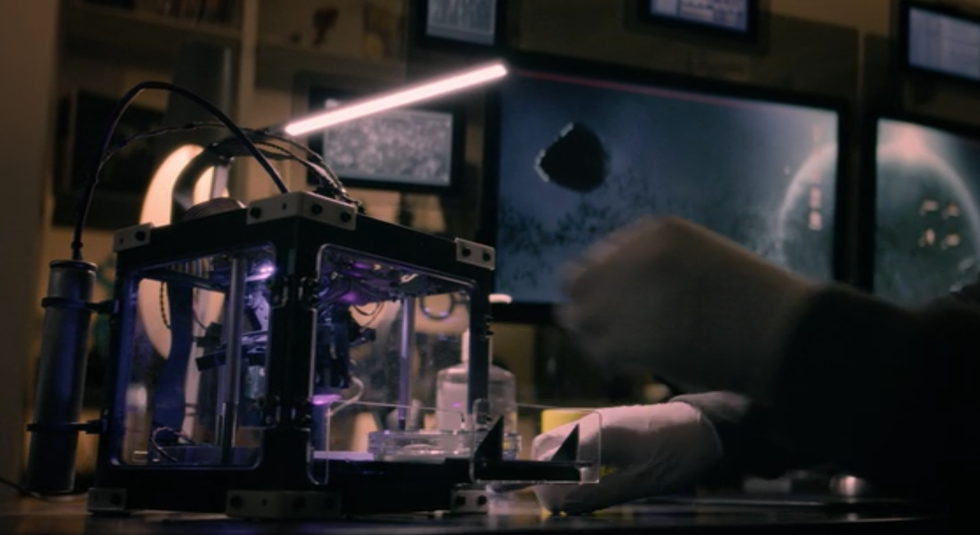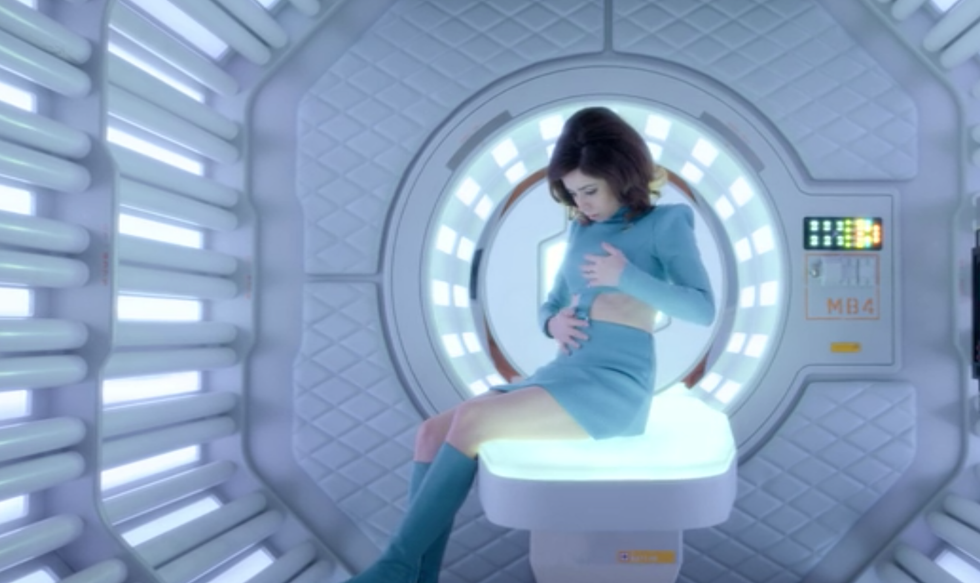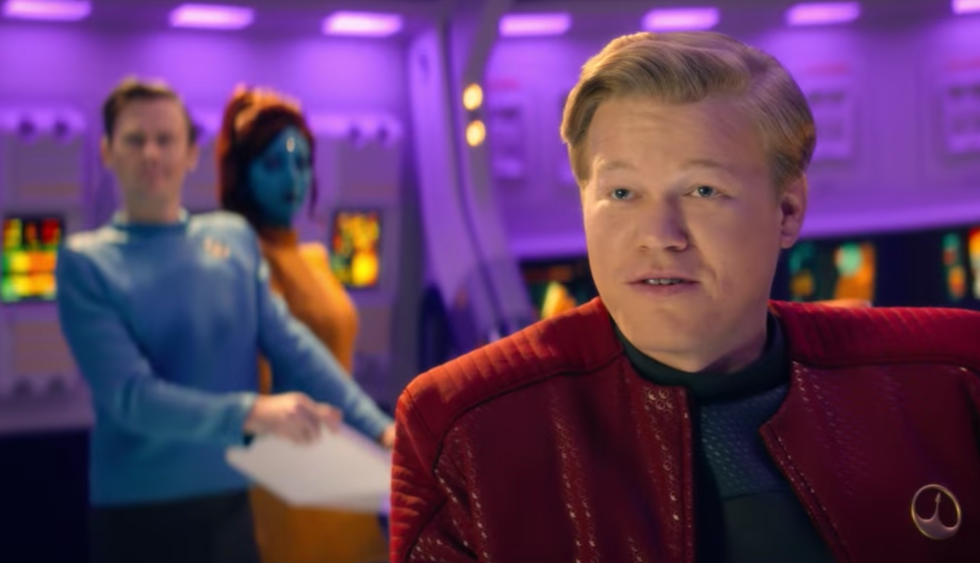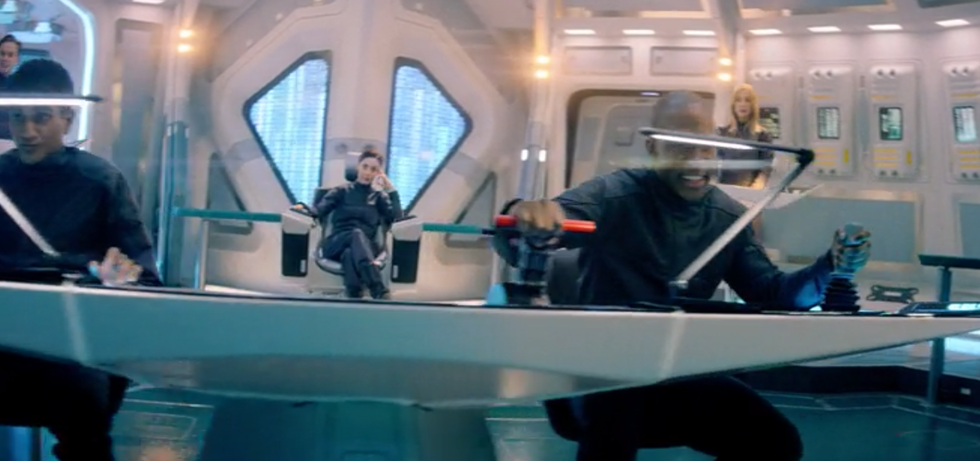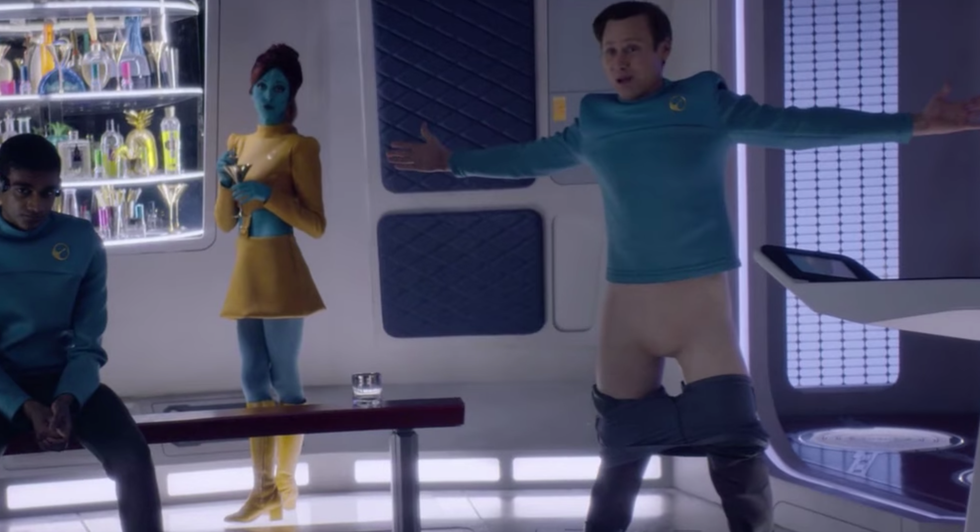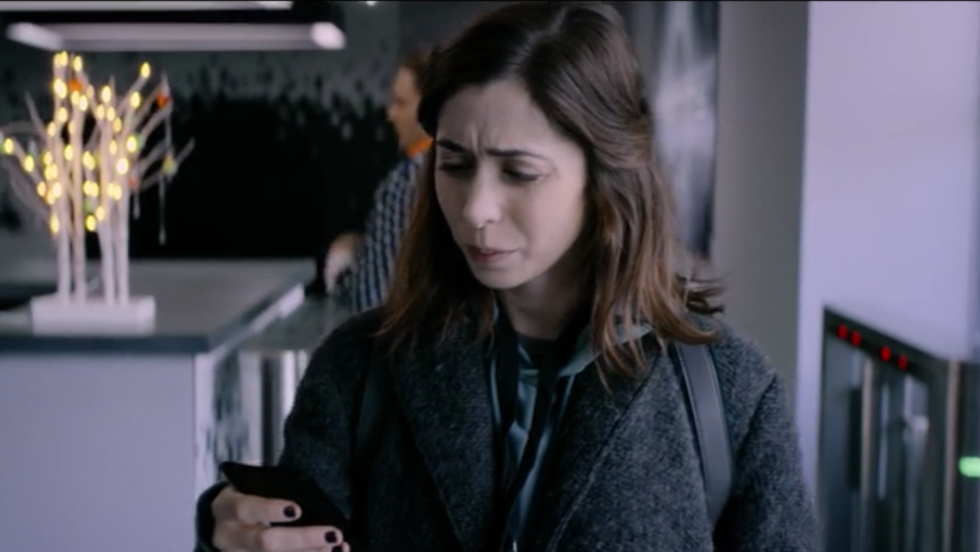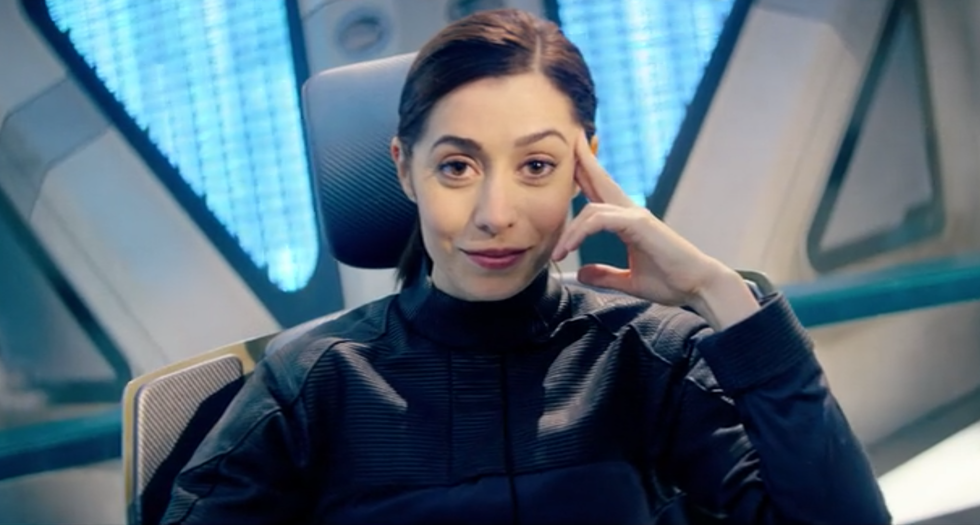Season four of “Black Mirror” launched December 29, 2017, on Netflix. If you aren’t familiar with this sci-fi anthology series, I wrote a previous article that explores some of the shows most compelling themes. In short, “Black Mirror”, attempts to reflect the world we so often cling to that exists on the other side of our screens. The ideas are so perfectly skewed that you could actually envision how some of their takes would play out in our reality.
*minor spoilers ahead*
In the season's first episode, "USS Callister" resembles pieces of "Star Trek" with a dark twist. Robert Daly is the main character who invents a state of the art gaming technology that allows its players to live out their best lives via virtual reality. He spends his work days being made fun of or ignored by his co-workers.
It’s only until a new hire, Nanette, comes into the picture. She is a huge fan of his work and is the only person who treats him with the respect he deserves. Once he overhears a coworker warning Nanette not to be too nice, Daly uploads her DNA to the game and traps her inside of the USS Callister. Quiet and timid at work, but once Daly gets home he loads himself into the game and demands respect. Whether his coworkers like it or not.
This episode is one of my favorites from the latest season. It came with moments of laughter, disgust, and never failed to itch at my brain. Here are ten important questions “USS Callister” will raise.
1. What Could Someone Really Do With Your DNA?
Not only does this episode give us a creepy glimpse into the mayhem a tech lord could capture you into, but it might also make you a bit more conscious about the way you throw out a disposable coffee cup. While this is something Daly uses to extract and upload Nanette's DNA to the game, an article published last year uses the same example in regard to protecting your DNA from getting into the wrong hands.
2. What Constitutes The Self?
Once Daly uploads his coworkers DNA, they are brought to life as copies of themselves inside the universe of his virtual reality game and are subject to his commands. Although we know our DNA holds an endless amount of personal information, this episode gives us something more to think about when it comes to the concept of the self. We are more than our physical bodies. Our ideas create cities, books, and art. We are our thoughts, feelings, actions, and so much more than meets the eye.
3. Does Death Truly Free Us?
In a plan to escape the jail of Daly’s USS Callister, Nanette contemplates killing herself to escape. Unfortunately, this won’t work. Daly keeps everyone’s DNA in the refrigerator and he can quickly suck you right back into his game. Let's not forget about the punishment you will face upon your return for trying to leave. It reminds us that there is a cycle to everything and to use death as a way out is indeed a “deadly” sin.
4. What Does It Mean To Be God?
The common view of God is a faith-based belief geared toward the creation of the universe and all living things. When we think about this concept, it could be said that Daly, in a twisted way, is both God and the devil. Where the devil cannot fully create, but only shift in shape, Daly fits both parts. While he created a virtual universe for escapism, he also took advantage of his coworkers DNA and shifted it to copy them for his own sadistic pleasure.
5. How Many Versions Of Myself Are Out In Other Multiverses?
Daly’s technology allows its users to live out their best life through virtual reality thus creating their own additional universe. Apart from the multiverses, we create in our head, our art, and more, there seems to be a multiverse inside of Daly’s USS Callister game. Once the crew abandons Daly and flees through the wormhole, they don’t make it out the way they originally envisioned. Instead, they are aboard a new spaceship with up to date clothing and new missions to complete - in a different universe.
6. How does basic primal pleasure define us?
In Daly’s USS Callister, sexual organs and buttholes are out of the picture. On one hand, it’s Daly's way of staying true to the integrity of the original series, "Space Fleet, his virtual universe was modeled after. On the other hand, it takes away the basic pleasure of sitting on the toilet to push out a nice number two. It's one thing to dominate and instill fear in people, but it's another to take away such basic satisfactions.
7. Should I Be Listening More to My Intuition?
Once Nanette's DNA replication figures out how to contact her “real” self it’s interesting to see how the rest of the episode plays out. She sends her "real" self an alert stating people are in danger. Upon reading the message she tells Daly about it. Not a good move on her part. Once he logs into the game, he goes to take it out them. Just like Nannette's copy sent out an SOS to herself, our intuition is always looking out for us. Do you choose to listen and follow it or do you question it and give others the power?
8. Luring Men
Daly has robbed all of his replicas from having any sexual organs, but that doesn’t stop Nannette from exercising her final master plan in hopes of escaping his rule. While accompanying Daly on a mission she strips down to her underwear and jumps in a small pond lure him in. Daly, Nannette, and the audience are all well aware that this promises no sexual activity, but somehow it still manages to get him away from his remote control. She wins this battle and gets that much closer to escaping.
9. Why do we follow norms, rules and the status quo?
Although several coworkers have already been trapped in Daly’s virtual universe, it isn’t until Nanette arrives and challenges what everyone has accepted for so long. Daly has the power to punish anyone who disobeys him by covering their face so they can’t breathe, turning them into a monster, and even bringing in DNA copies of their children to torture in front of their parents. Although the consequences are much more dire in this universe, it doesn’t mean rebellion is impossible. Nanette outsmarts Daly and ultimately finds a release. This is something to remember in our current reality.
10. What does it truly mean to be free?
This one is my favorite. I’ll let you contemplate this one on your own. After all, we’re all free. We need to remember it’s our responsibility to exercise that freedom.

